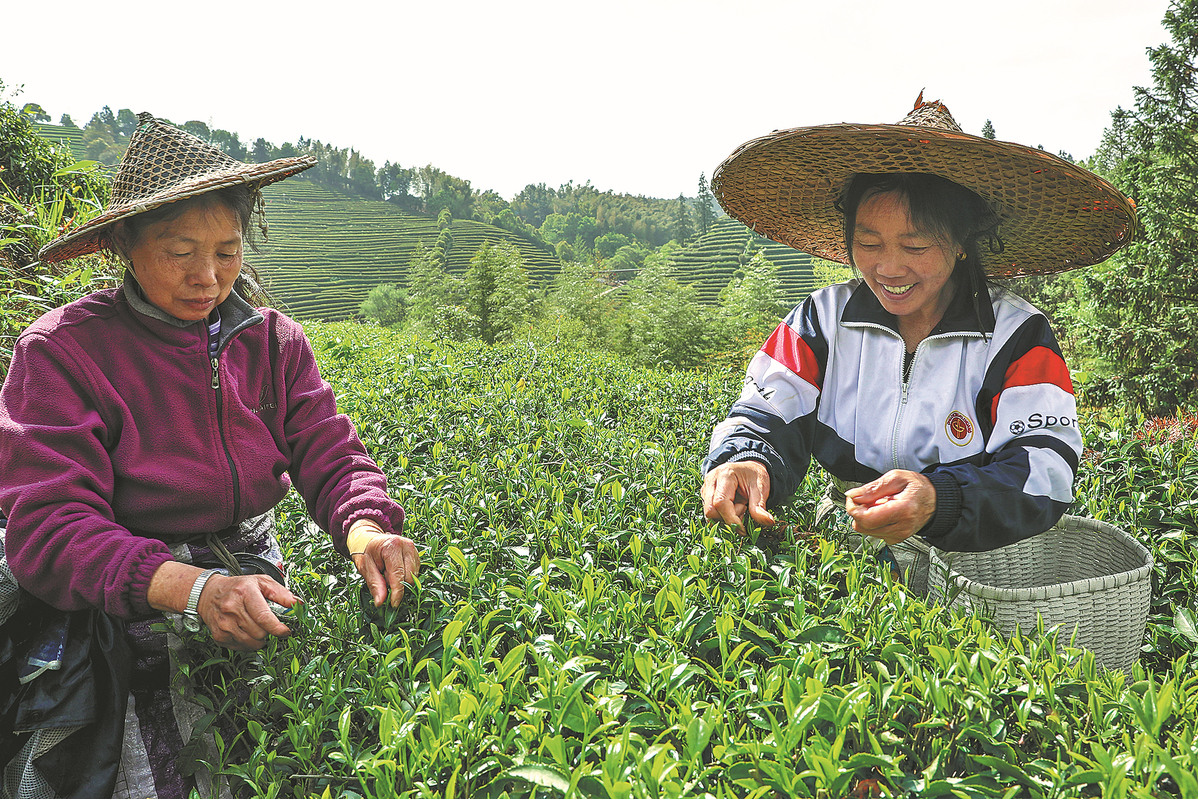Wuyishan National Park aims to grow sustainable tea sector


Leveraging technology
Embracing sustainable agricultural practices is at the core of improvement efforts for the park's tea industry. Growers are encouraged to minimize the use of pesticides and artificial fertilizers, and employ organic and natural alternatives to protect the ecosystem and consumers' health.
Eco-friendly terraced plantations that use the "tea forest" and "tea grass" models have been introduced to the park. Moreover, the authorities provide farmers with free seedlings of precious broad-leaved trees such as nanmu, yew and ginkgo, which encourages intercropping with tea bushes. This practice not only protects local biodiversity, but also improves the quality of the tea by providing natural shade for the leaves as they grow.
To improve the quality of both soil and tea, an eco-friendly approach has been adopted on the farms in which tea is interplanted with soybeans and rapeseed.
The Wuyishan National Park has established 267 hectares of eco-friendly tea plantations, according to its management bureau, and each tea-planting household has reduced its annual use of fertilizer by an average of 6 metric tons.
The park's authorities have been working with tea experts to improve production and quality through the use of innovative technological methods.
Since the 1990s, more than 1,000 special sci-tech experts have been sent to Fujian to support local agriculture.
Liu Guoying arrived in the first batch. "What I have done in recent decades is help farmers and businesses improve the quality of the tea," said Liu, who is a household name in the area for his expertise in the production of Wuyi rock tea.
"Our team works closely with the farmers, teaching them how to manage tea plantations effectively and refine their tea-growing skills. By raising the overall quality of our tea, we can command higher prices, which boosts profits for the farmers."
Yang Wenchun, a local tea farmer, said, "In the past, we lacked knowledge of scientific tea field management, which resulted in teas of average quality that were only suitable for basic daily consumption.
"Now, we have embraced scientific approaches. During the summer, we plant soybeans which helps improve our overall productivity. As a result, the quality of our teas has risen significantly and they are proudly served to honor esteemed guests and cherished companions in pleasant social interactions."























